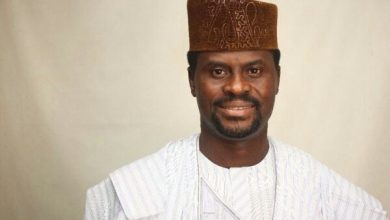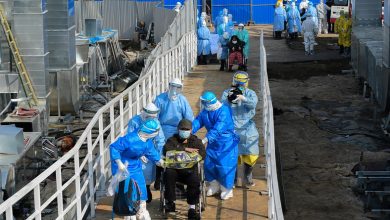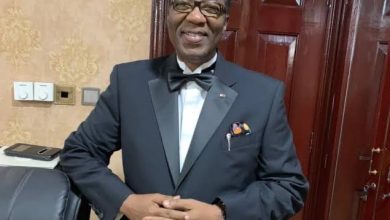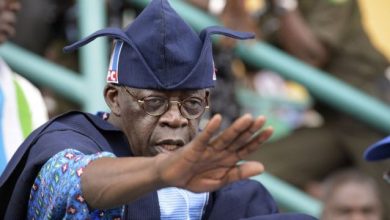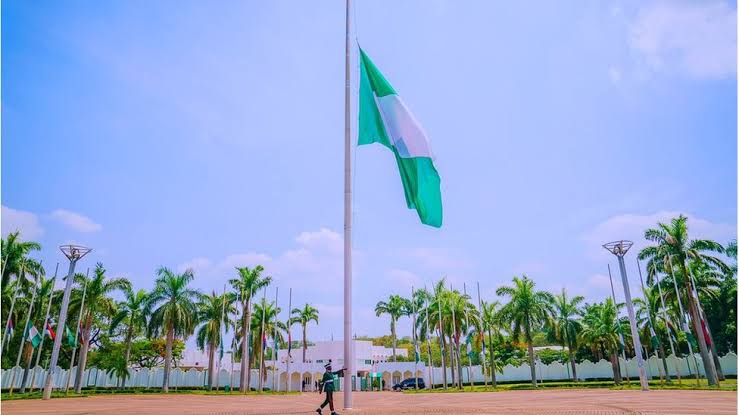
For the records: Political Parties, 2023 Elections and the Future of Democracy in Nigeria
Being a keynote address delivered by Prof Okechukwu Ibeanu at the conference on “Political Parties, 2023 Elections and the Future of Democracy in Nigeria” organized by the National Institute for Policy and Strategic Studies (NIPSS) at the International Conference Centre, Abuja, 2nd May 2023.
Introduction
I feel very privileged and deeply honored to be asked to set the tone of this very important meeting. However, aside from being a friend of the Institute’s for over a decade now, I am not exactly sure why I have been chosen as the keynote speaker. The most cogent explanation that I can think of is that I was for 10 years a member of the now endangered species called “those INEC People”. This species has one of the most difficult jobs in the world, which is not just conducting very difficult elections, but also regulating very difficult political parties. As Chief Technical Adviser to the Commission for five years and National Electoral Commissioner for another five, this was arguably the most difficult part of the job because the parties in government saw themselves as our masters to whom we must be beholden, while those out of government saw us as meddlesome. Imagine having the legal responsibility of regulating either your master or one who views you with deep suspicion.
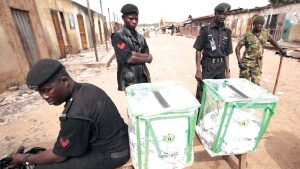
However, now that I have survived that Darwinian crucible called INEC, which sometimes feels like surviving a life-threatening condition, I can share some of my thoughts out of those sleepless nights and restless days of constructing the framework for making political parties better or making life more difficult for them, depending on who you speak to. At least, I can now address some of the issues and be seen neither as beholden to any master nor as a meddlesome interloper, but simply as somebody who has taught politics at the university level for 40 years.
It is my intention, time permitting, to do four things in this keynote address. I will start with my personal, stylized rendition of the history and evolution of Nigerian political parties, dating to the beginning of the 20th Century. Second, I will characterize political parties in the present phase of that evolution which I call the post-nationalization phase. The third thing that I hope to pursue is to look at the 2023 general election and the role played by political parties to see if it justifies my characterization of the post-nationalization phase. Finally, I will end with a few thoughts on the future of our democracy and what it holds for political parties.
Chequered history of Nigerian political parties Nigerian political parties have evolved through five phases: Pre-nationalist phase – before 1900. This was the embryonic stage of Nigerian political parties. They were not political parties as such, but “young men’s clubs with political aspirations”, as colonial dispatches called them at the turn of the 20th Century. Their raison d’etre was essentially to be accepted as a bona fide part of the colonial political class.
Nationalist phase – 1900 – 1951. Nationalist organizations fighting for the dignity and freedom of Nigerians starting from Lagos and Calabar and spreading across the emerging nation.
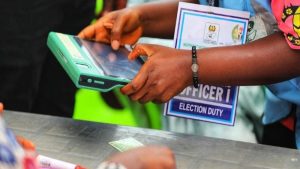
Sub-national phase – 1952 – 1966.Divisive regionalist and ethnic organizations promoting segmental, sectional and primordial interests, which were perceived to be responsible for everything that led to the collapse of the first Republic and the ensuing civil war.
Nationalization phase – 1979 – 1983 & 1988 – 1993. Nationalized organizations required to re-unite the nation and set it on a liberal path of progress and development. It was a phase of homogenization of political parties. At one point, the two existing parties were pejoratively described as “government parastatals”,with government written constitutions and manifestos, government assigned office buildings, and government decreed ideologies – a little to the left and a little to the right.
Post-nationalization phase – 1999 – date. Organizations that are seemingly seeking to rediscover what seems to be their inherent spirit. They are gradually returning to organizations for promoting segmental, sectional and sub-national interests. They appear to be recreating primordial homebases, defending primordial interests, including denying citizens the right to vote on grounds of ethnicity or religion. With the post-nationalization phase, the evolution of Nigerian political parties appears to have come full circle and the young men’s clubs with political aspirations have become the old men’s clubs with political dominion.
Political parties in crisis. The present post-nationalization phase is a major watershed in the evolution of Nigerian political parties. It is a phase in which political parties are seemingly trying to discover their true individual identities following years of homogenization. Expectedly, this affects three things namely, their internal rules, their composition and character, and above all, their ideological leanings. Indeed, the parties are clearly at a crossroads and therefore in crisis.
Essentially, the critical point is created by a fundamental contradiction between the requirements imposed by law and the realities of parties. Consequently, there are three dimensions to this crisis of Nigerian political parties in the post-nationalization phase as follows:
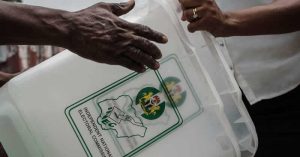
*Rule crisis: This crisis expresses a conflict between legal requirements for party operation as enshrined in the Constitution and Electoral Act and the realities imposed by the running of the political parties. To illustrate, the legal framework envisages and demands rule-driven and democratic internal functioning of political parties. However, the reality is that the parties are essentially organizations dominated by “big men” and big money. Therefore, they have good rules on paper, which in most cases are observed in the breach, ostensibly because of the exigencies of running a successful electoral party. One party stalwart once described it graphically to me. He argued that registering a party, establishing a functional secretariat, membership drives, and day-to-day running of the organization all require money and he had been practically the sole financier for years. But when it came to selection of the Presidential candidate of the party, the rules say that it should be thrown open to members of the party. He insisted that such was a travesty of justice and therefore undemocratic, since democracy, for him, does not promote injustice.
As such, the rule crisis also manifests as a conflict between formal rules and procedures on the one hand, and an increasing non-formalization or informalization of party processes on the other. In other words, rule crisis appears as a lasting conflict between legal requirements for intra-party democracy versus the party machine. The net effect of this rule crisis is the jettisoning of laid down rules and the appearance of party cliques and strongmen. Enter “godfatherism”.
Identity crisis: Appears both as the instability of party membership and leadership and confusion about the character and purpose of the party. For instance, the character of Nigerian political parties is seemingly in a constant state of flux. It is not clear whether they are national parties or sectional parties, or indeed, whether they are mass parties or elite/cadre parties. The best illustration of this lack of character or identity is the recent situation in which two major political parties had their top leadership as former members and leaders of the other party.
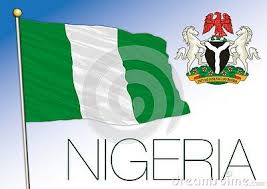
Essentially the leaders of the parties had seemingly migrated in opposite directions. The explanation of this identity crisis lies, first, in the constant adjustment by the parties to remain politically relevant and to win elections. They can become anything just to win elections. Secondly, it has to do with repeated attempts to shape them in a particular mold, initially by military rule and subsequently by Constitutional provisions. This molding of parties especially into a national character, against their sectional tendencies, remains a defining characteristic of the nationalization and post-nationalization phases of their evolution. Enter party “sectionalism”.
Ideological crisis: I question the idea that is quite popular in both academic writings and everyday discourses that Nigerian political parties do not have an ideology. That is incorrect. In fact, a precondition for their existence as provided in Section 224 of the 1999 Constitution is that they shall “conform with the provisions of
Chapter II of this Constitution”. That Chapter clearly defines the ideological basis for Nigerian politics and no political party can go against that ideology. That ideology, which I shall describe as Nigerian Liberalism, has three components namely, national unity, market economy and liberal democracy. It was based on this overarching ideology that the homogenization of Nigerian political parties began during the nationalization phase. In that project, Nigerian political parties became essentially identical down to their aims and objectives, membership and even funding.
This homogenization was consummated in Sections 221 to 229 of the 1999 Constitution, which include provisions on how parties are to be formed, their membership, funding, logos and insignias, as well as their registration and deregistration. In this process, “extreme” political ideals became abhorrent, and all political parties moved disturbingly to the centre of the ideological spectrum.
The crisis of ideology therefore appears as a contradiction between homogenization imposed by the law and differentiation required for electoral politics. It raises the paradoxical question: how do you have different parties which are by law required to be the same? To resolve this paradox, Nigerian political parties always return to the default mode of region, ethnicity, religion and other communal differences. And this is not difficult to understand. Elections are not won on the basis of identicalness, but on the basis of differences. Since the parties are essentially the same in terms of their “programme as well as the aims and objects”, according to Section 224 of the Constitution, parties naturally seek for what separates them in order to woo the electorate, such as the ethnicities and religious affiliations of their leaders, their regions or fear of other people dominating their land. In addition, trying to build national political parties over these sectional and primordial commitments only serves to complicate the political identities of parties. This is because so many interests drawn from these identities compose these parties and they must try to placate them both during elections and after winning elections. The result is that party programs become indistinguishable mosaics and after elections prolonged horse trading ensues attempting to satisfy these motley interests. In the end, not all these interests would be well served, leading to constant movement across parties or to proliferation of parties. Enter “nomadism” or party crossing.

There are four critical effects of the homogenization of political parties and the consequent crises that are worth noting. First, because of homogenization, political parties take up too many interests to win elections. In the process, they try as much as possible not to dissatisfy any of these interests, with the result that their policies and programmes for government become too broad, meagre in content, verbose and unfocused. They are also torn internally by these numerous usually competing interests.
Paradoxically, in an attempt resolve these internalcontradictions, the big parties will essentially focus of traditional, big issues, leaving out many emerging and new issues to smaller parties. Second, as political parties, especially the big parties, move to the centre because they have become ideologically indistinguishable, non-centrist and extreme interests, both on the Left and Right of the ideological spectrum attempt to form separate parties. On paper, they will appear to meet national conditions imposed by law but, they would organize differently.
This has led to a proliferation of parties, as we saw in the 2019 general election when there were 93 political parties in Nigeria. Another dimension to this proliferation is that many parties become the pet projects of big politicians who keep them as their fallback position in case they lose out in power struggles within the major parties. The smaller parties, therefore, become the satellites of the bigger parties.
A third effect of homogenization and the attendant bypassing of new issues and non-centrist interests, there is a tendency for political movements or social movements seeking political interventions to become more frequent. This is what some political scientists have described as “the publics”. They may pursue single or multiple interests and their strategy is usually to “use the streets”, meaning marches, demonstrations and sometimes violent confrontations with political authorities. We have seen this in Nigeria in recent times. For instance, the pro-fuel subsidy movement in 2012, the End SARS movement in 2020 and the broad coalition that became the “Obidient” movement in 2022. They become political active through what I call political channeling. By this I mean that these movements channel their demands not directly to government, as would be the case normally, but through a political party or candidate.
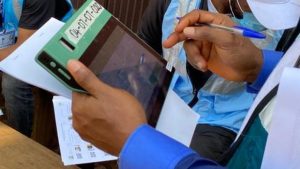
The fourth and final effect of homogenization and crises of political parties is the rise and entrenchment of vested interests, both within parties as cliques and outside of them as lobbies and influence peddlers. This will find the strongest expression in the role of big financial donors to political parties and candidates, especially in Presidential elections. Given the amount of money required to run such elections in the face of the multiplicity of interests to be assuaged in the post-nationalization, homogenization phase of political parties, vested and monied interest will definitely rule the roost.
Lessons from the conduct of the 2023 general election The 2023 general election continues to divide opinions among Nigerians and non-Nigerians alike. It seems that the dominant opinions have been characterized by extremities, such that the election was either totally good or a total failure. Any useful evaluation must take into consideration that a general election is not election-day activities. In fact, it is globally accepted that elections are cyclical with three distinct phases, pre-election, election and post-election.
Each of these consist of a number of broad activities as follows: Pre-election: Legal framework, planning, training and education, voter registration and election campaigns. Election: Voting operations and Election Day, and results verification.
Post-election activities. These broad activities are in turn subdivided into several activities. This is the widely used electoral cycle model. I have always thought, and I am sure that many practitioners would agree, that the simple electoral cycle model does not fully capture the extent of activities that elections entail. Indeed, each of these broad and specific activities have three sub-components namely, preparation, implementation and post-implementation components. To illustrate, take voter registration, which is a broad pre-election activity, you can think of several sub-activities including acquisition of technology, voter sensitization, procurement of consumables, etc. My position is that each of these sub-activities has to be prepared, implemented, monitored and evaluated. In this way, you can have hundreds of activities that must be prepared, implemented and evaluated to hold a single general election. The problem is that any of these minuscule activities at its preparation or implementation stages could lead to far reaching destabilization of the election. The delays, for instance, in the procurement of base cards for printing the Permanent Voters Cards could affect an election fundamentally. The point here is that we should look at the entirety of the electoral cycle and the activities that were implemented before we can reach conclusions. While it is true that elections proper constitute the raison d’etre of the electoral process, it is only fair that a more comprehensive approach to evaluating the general election is adopted.
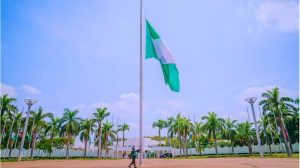
Still, there are ten defining factors in the conduct of the 2023 general election that stand out for me. Five of them made very positive contributions to the general election, while the other five were posed major challenge to the high-quality elections that INEC promised Nigerians and seemed poised to deliver. I will only outline them.
The positive factors are: The new legal framework, specifically the Electoral Act 2022. Early planning for the election by the Commission, both the Strategic Plan and the Election Project Plan. New technologies particularly, the IVED, BVAS, IReV, online candidate management, etc.
Voter enthusiasm, especially the massive interest by young voters. Expansion of voter access to polling units. While the negative factors include the following: Insecurity and violence, especially attacks on INEC’s facilities and threats to peaceful elections. Instrumentalization of ethnicity and religion for electoral purposes by politicians. Culture of electoral impunity and voter inducement and vote buying, particularly with money. Economic challenges prior to the election. Large and mostly late turnover of critical personnel of INEC, especially National and
Resident Electoral Commissioners and the quality of their replacements. In these negative factors, what the government and politicians have done to INEC is akin to the proverbial sending a man home with a bag of salt and conjuring a heavy rain after him.
On the outcome of the various elections conducted during the general election, I am reluctantto delve into them since a lot about them is already sub judice. But there are two unhelpful and disobliging perspectives that are making the rounds. The first are those who believe that the elections are flawed because their preferred candidates did not win. The second and even more disingenuous are those who argue that those who are aggrieved feel so only because their preferred candidates lost. Thus, there is a tendency to portray those challenging the outcomes in court as bad people or people who hate Nigeria. It is important to reiterate that the legal process is a legitimate part of our electoral system. It demands that a fair adjudicatory process examines and determines the merits of these grievances. In fact, as inconvenient as these election petitions may appear to some people, my experience is that they have been a fertile soil for electoral reforms and improvements.

On the role of political parties, the 2023 general election appears to have congealed this eventful history of political parties in a single electoral cycle. The three dimensions of the crisis were boldly expressed in both intra-party and inter-party activities during the election.
Intra-party Inter-party. Rule Crisis • Problematic election of party officials * Problematic party primaries • High cost of nomination forms and primaries • Intra-party violence. • Poor record keeping.• Campaign violence • Breach of electoral rules and regulations • Constant demands for INEC to alter regulations and guidelines. • Attempts to influence electoral agencies
– INEC, security and judiciary. Identity. Crisis • Party crossing • Ethnic and religion-based campaigns • Creation of ethnic strongholds • Inability or difficulty producing membership list. • Zoning of party offices and candidature. • Voter suppression. • Zoning of political offices. Ideological Crisis • Lack of clarity in formulating party manifestos and programmes. • Absence of issue-based campaigns.• Voter inducement and vote buying
Epilogue: the future of Nigerian democracy. Generally speaking, every democracy is to be understood in the context of the sub-structure, structure and political culture of the society. By sub-structure, I mean the underlying material conditions of the society, how it produces wealth and how work and rewards are organized.
There is a clear connection between strong democracies and fair and equitable work and reward system. Where voters are extremely poor, democracy tends to be weak. By structure, I mean the forms of vertical and horizontal relations prevalent in the society. By horizontal relations I designate the interactions among its components – ethnic groups, religious groups,communities, etc., while vertical relations refer to the relations between them and the state.
Where horizontal relations are characterized by extreme inequities, perceived or real, and conflicts, democracy is weak. At the same time, where the vertical relations are marked by state oppression and constricted civic space, democracy is also very weak. Finally, by political culture I designate the dominant political attitudes and ways. If the political culture does not encourage participation, negotiation, bargaining and freedom of expression, then democracy shrinks. The future of democracy will broadly speaking depend on how these three dimensions evolve.
More specifically, what I am beginning to see of Nigerian democracy is that citizens, especially the younger generation, are asking more and more questions about the Nigerian society through politics. They are interrogating whether the triple heritage of Nigerian liberalism namely, national unity, market economy and liberal democracy is really delivering for them. They are interrogating the real meaning of national unity and young people are framing new meanings and building new circuits for promoting real unity through technology and the performing arts.
They are interrogating whether the market economy is providing equitable economic opportunities for all. In the process, they are working extremely hard to be innovative with many startup companies springing up across the country, but without adequate support fromthe state. They are determined through politics to make the state more economically equitable and to provide the right incentives for economic growth and development. Finally, they are also interrogating liberal democracy, as presently practiced in Nigeria, on whether it is delivering real voice and participation for citizens. These questions will find more and more expression in political and social movements, direct demands for the expansion of the political space and channeling those demands through fringe political parties and charismatic candidates.
What do all these mean for political parties? Simply, there are six emerging realities that Nigerian political parties would have to face. These are: Citizens’ demands for improved representation from elected officials and political parties. Citizens’ demands for more accountability from aspirants, candidates, parties and elected officials. Rise of new interests beyond the ideology of Nigerian Liberalism. Demands for new forms of political representation beyond political parties, such as independent candidates, Corporatism, etc.
Greater involvement of youth and technology. These are the two most potent emerging forces of Nigerian democracy and politics. They will challenge and supervene godfathers and money. Political parties that realize this and adapt to these many startup companies springing up across the country, but without adequate support from the state.
They are determined through politics to make the state more economically equitable and to provide the right incentives for economic growth and development. Finally, they are also interrogating liberal democracy, as presently practiced in Nigeria, on whether it is delivering real voice and participation for citizens. These questions will find more and more expression in political and social movements, direct demands for the expansion of the political space and channeling those demands through fringe political parties and charismatic candidates.
What do all these mean for political parties? Simply, there are six emerging realities that Nigerian political parties would have to face. These are: Citizens’ demands for improved representation from elected officials and political parties. Citizens’ demands for more accountability from aspirants, candidates, parties and elected officials.
Rise of new interests beyond the ideology of Nigerian Liberalism. Demands for new forms of political representation beyond political parties, such as independent candidates, Corporatism, etc. Greater involvement of youth and technology. These are the two most potent emerging forces of Nigerian democracy and politics. They will challenge and supervene godfathers and money. Political parties that realize this and adapt to these two new forces will lead in future. Demands for stiffer regulation and modernization of political parties. Thank you for listening.
Professor Okechukwu Ibeanu is of Political Science and Development Studies University of Nigeria, Nsukka
FOOTNOTE: You want to share story with us? You want to advertise with us? You need publicity for product, or service, or event? Contact us on WhatsApp +2348073463653 or email [email protected]



